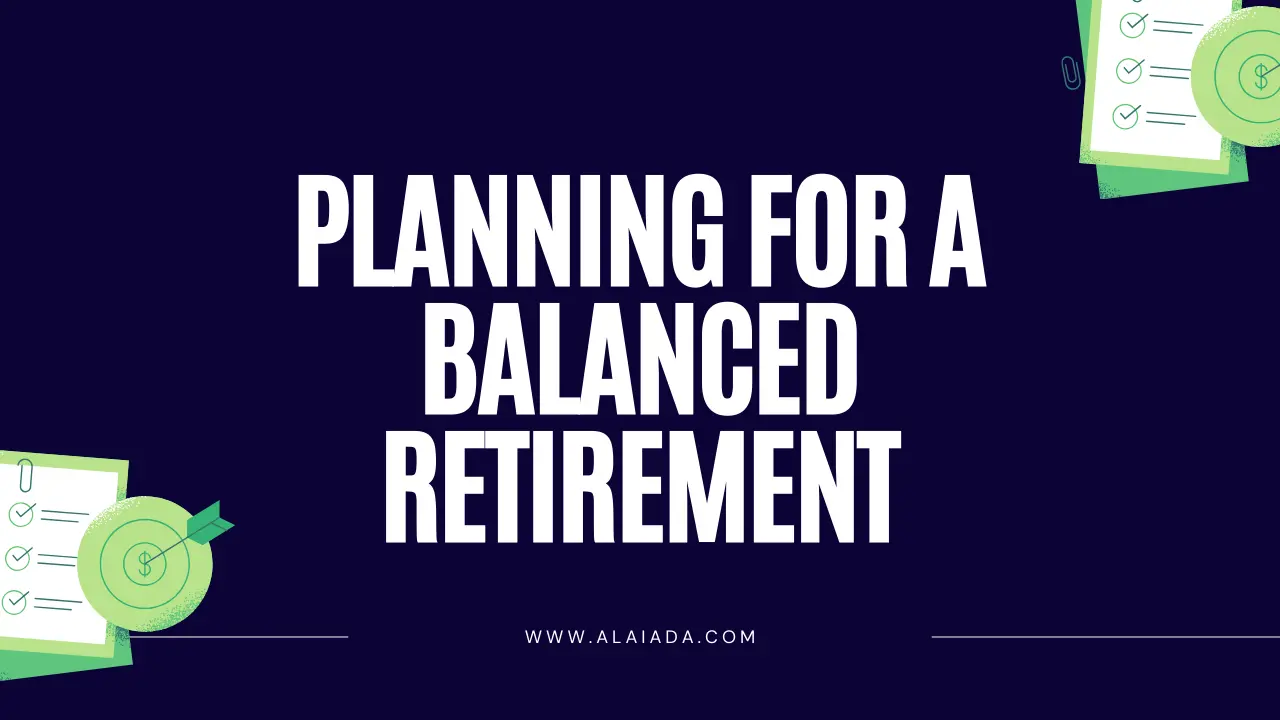Planning for a Balanced Retirement: Strategies and Insights

Building Financial Foundations
To lay a secure foundation for retirement, it’s crucial to focus on financial readiness. Establish a well-thought-out budget that reflects your current financial situation while considering future expenditures. The goal is to balance meeting short-term needs and preparing for long-term financial security.
Reducing or eliminating debt is another key element in this preparation phase, as it frees up resources that can be directed into savings. Once you grasp your budget and debts, setting concrete savings milestones allows you to track your progress and stay motivated on your retirement journey. Securing and understanding tax advantages associated with retirement savings vehicles like IRAs and 401(k)s can further enhance your ability to save effectively.
Diversifying Your Investments
Investment diversity stands as a cornerstone for a robust retirement plan. The principle here is not to put all your eggs in one basket, as the saying goes. By spreading your investments across various asset classes, such as stocks for growth potential, bonds for stability, and real estate for tangible assets, you mitigate risk while maximizing potential returns. This asset diversification strategy helps cushion against economic volatility.
This can include contemplating various small business retirement plans that offer specific advantages, such as tax benefits or employer contributions, giving your plan the resilience it needs. Financial markets can be unpredictable, and diversification protects, preserving capital and potentially enhancing returns. As you draw closer to retirement, adjusting the portfolio to lean towards less risky investments ensures stability and consistent income.
Tailor your strategy in consultation with financial experts who can clarify the choices best suited to your financial goals and risk tolerance. Emphasis on emerging markets and sustainable investments can also offer fresh avenues for those looking for both growth and ethical investment opportunities.
Prioritizing Healthcare
The advent of retirement often signals a critical shift in healthcare priorities. Healthcare costs typically rise as you age, posing a substantial challenge to your savings if not anticipated. Securing a comprehensive healthcare plan is not merely an option but a necessity to protect your financial assets. This includes considering Medicare options alongside private healthcare supplements to cover gaps in basic coverage.
Recent insights into healthcare spending illustrate the growing need for proactive health financial planning. Regularly reviewing and adjusting your healthcare policies ensures they continue to meet your anticipated need for medical services, aiding in maintaining a quality lifestyle without financial strain. Beyond policies, incorporating a personal health strategy, including regular exercise, a balanced diet, and routine check-ups, can help manage potential future healthcare needs.
Maintaining Your Lifestyle
Ensuring your retirement years are fulfilling and enjoyable, alongside financial planning, should be a primary objective. This involves defining what lifestyle you envision for yourself after concluding your professional career. Whether it’s travel, pursuing hobbies, or engaging in volunteer work, these life enrichments should be factored into your retirement plan.
Consider how you want to allocate your resources to sustain these activities by staying within what your budget allows. It’s about balancing living comfortably and indulging in life-long passions while preserving enough resources for retirement. Implementing a flexible and adaptable approach to budgeting for these lifestyle choices will help keep the experience enjoyable without financial stress.
Navigating Social Security
Social Security benefits can significantly support your retirement income, and strategically determining how and when to claim these benefits is crucial. Timing can be everything—waiting to claim can increase your benefit amount, but individual circumstances like health conditions or employment status may influence this decision. Use online tools to calculate your benefits, and consider consulting with an advisor to tailor your approach.
A thoughtful strategy regarding Social Security allows you to potentially maximize benefits while integrating them efficiently with other income sources. Understanding the regulations governing Social Security also empowers you to make informed decisions involving family benefits, spousal or dependents benefits, each offering possible enhancements to your overall retirement income.
Seeking Professional Advice
Given the intricate nature of retirement strategies, professional guidance can illuminate paths you might still need to consider aren’t. Financial advisors offer expertise in crafting plans that accommodate unique personal and economic scenarios, suggesting adjustments that can improve outcomes.
They have the foresight to foresee and plan for market fluctuations, tax implications, and estate planning, streamlining complex decisions into manageable actions. Partnering with an advisor can align your retirement aims with actionable plans, ensuring your financial future is as secure and fulfilling as you’ve envisioned.
Exploring continuous financial education, such as essential reverse mortgage information or how to properly contribute to a Roth IRA, professional advice can empower you to make more autonomous and informed decisions, keeping your plans dynamic and future-ready.
Staying Flexible and Adapting to Change
Retirement, like life, can present unexpected challenges that require adaptability. Whether dealing with health changes, shifts in market dynamics, or other unforeseen personal events, your preparedness to adapt will define your retirement experience’s success. Regularly reassessing and readjusting your financial and lifestyle plans is essential.
Incorporating flexibility into your planning means actively preparing for change rather than reacting to it, which enables you to maintain control over finances and lifestyle choices, embracing opportunities as they arise while mitigating potential downsides. Cultivating a mindset that embraces change and harnesses learning will make transitions smoother, fostering resilience and peace of mind throughout your retirement years.
Resources and Tools for Retirement Planning
Embedding yourself in a resource-rich environment can transform daunting retirement planning into a comprehensible task. Online tools and calculators provide critical insights, allowing you to explore different scenarios and budget constraints interactively. Utilize comprehensive resources to stay informed on the latest retirement strategies.
Learning from datasets and expert analyses helps refine your approach, ensuring your strategy remains sharp and responsive to market changes and personal circumstances. These tools are instrumental in maintaining a proactive and informed approach to retirement planning. Further, participating in seminars, webinars, and workshops can amplify the depth of your knowledge and keep you abreast with ongoing changes in retirement planning policies and financial products.











